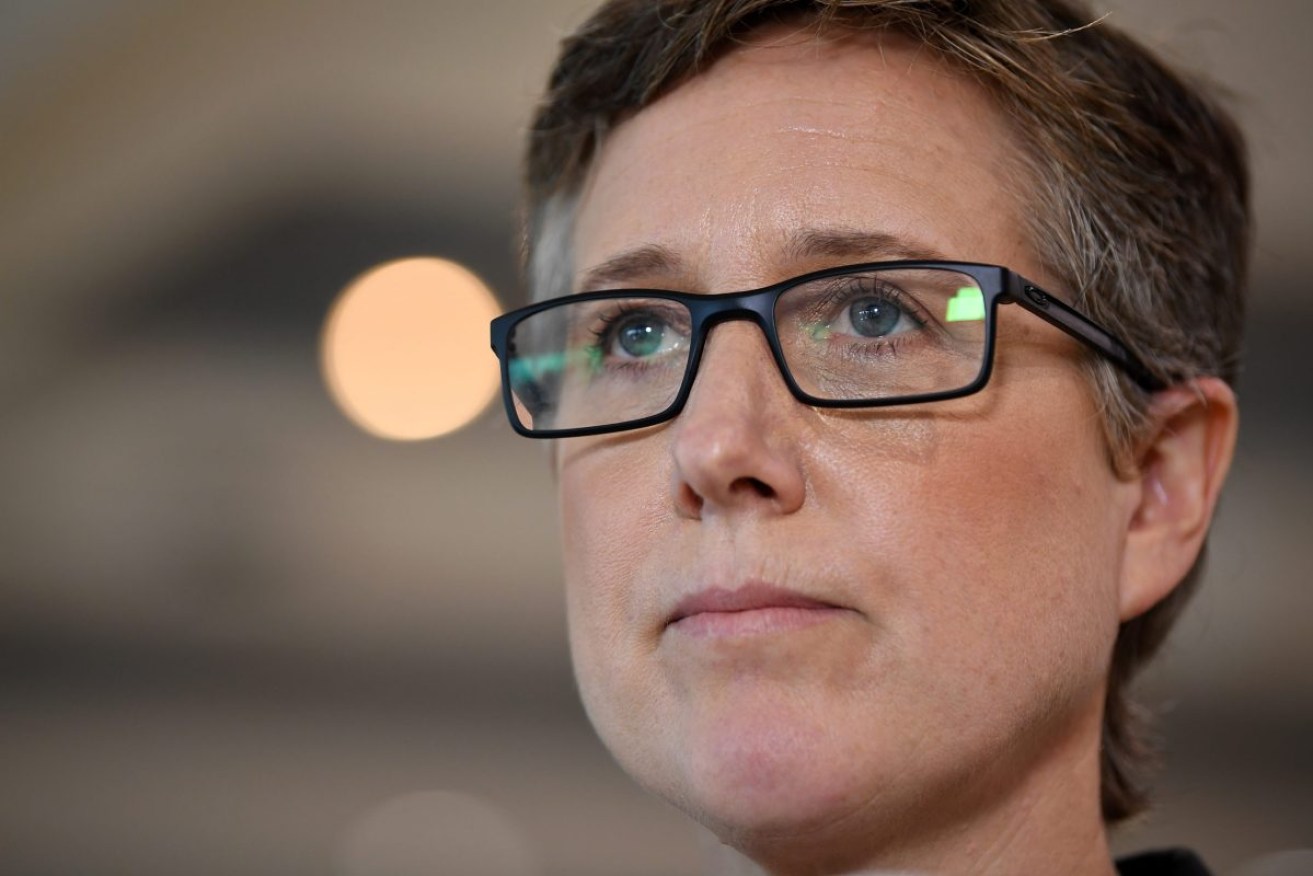‘Simply about survival’: Union push for 7 per cent minimum pay rise
The annual minimum wage for Australia’s more than 2 million low-paid workers should rise by seven per cent to $45,000, the Australian Council of Trade Unions says.

ACTU secretary Sally McManus. Photo: AAP/Joel Carrett
The annual minimum wage for Australia’s low paid workers should rise by seven per cent, the ACTU says.
The union body made the recommendation in a submission to the Fair Work Commission’s national minimum wage review ahead of a decision in June.
If granted, more than 2.6 million workers on minimum and award wages would be entitled to a new minimum hourly rate of $22.88, taking their annual pay to $45,337.28 from July 1.
The government will lodge a submission on Friday, but it won’t mention a specific number.
“We’ve been incredibly clear, we want to get wages moving again, it’s common sense to begin with the lowest paid workers,” Treasurer Jim Chalmers said.
“Our submission will reflect the fact that we don’t want to see people who are on the lowest incomes in this country fall further behind.”
Chalmers said the notion that inflation was being driven by low-paid workers getting wage rises was “absolute rubbish”.
The ACTU said low-paid workers deserve the rise because they had suffered the most under rising inflation, which had eroded their buying power.
“A seven per cent pay increase is essential for minimum and award wage workers, who have suffered real wage cuts over the past two years,” ACTU secretary Sally McManus said.
“It is simply about survival for the lowest paid workers in our country.”
The current annual rate of inflation is 6.8 per cent, according to Australian Bureau of Statistics monthly consumer price index data released on Wednesday.
“There are real people behind the statistics of Australia’s cost-of-living crisis – the workers we rely on to deliver vital services in early learning, aged care, disability care, fast food, cleaners, security, and retail,” McManus said.
The ACTU argues that because businesses posted strong – and in some cases record – profits in the most recent reporting period, the proposed wage increase is more than affordable.
Minimum and award wage increases had no discernible impact on inflation last year, it added, noting the biggest risk to the economy was a collapse in consumer spending power.
“There is no wage-price spiral in Australia,” she said.
Shadow treasurer Angus Taylor said the opposition wanted to see higher wages in real terms and the best way to achieve that was to drive down inflation.
“You want people’s real wages to go up without creating a wage-price spiral, which would be bad for everybody, then you’ve got to get inflation down,” he said.
“If you’ve got a strong productive economy and falling inflation, there’s room for wages to be higher, and that’s what we want to see.”
He also said the minimum wage decision was in the hands of the commission.
“That’s why we have an independent commission – I’m not sure whether Labor has the respect for that independence they once had,” he said.
In its 2022 decision, the Fair Work Commission raised the minimum wage by 5.2 per cent, equating to $21.38 an hour.
This was after the ACTU argued for a 5.5 per cent increase and the Australian Chamber of Commerce and Industry, Australian Industry Group and other employer bodies proposed an increase between 2.5 per cent and three per cent.
Submissions to the commission’s national minimum wage review close on Friday.
-with AAP




